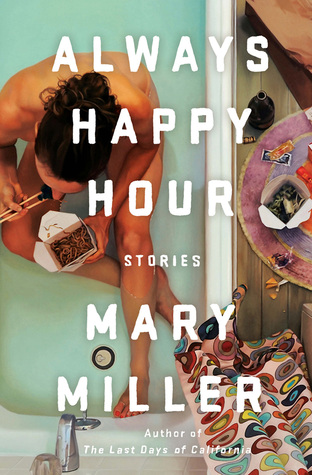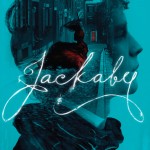I received this book for free from NetGalley in exchange for an honest review. This does not affect my opinion of the book or the content of my review.
 Always Happy Hour: Stories by Mary Miller
Always Happy Hour: Stories by Mary Miller Published by Liveright on January 10th 2017
Pages: 256
Format: eARC
Source: NetGalley
Buy on Amazon, B&N, iBooks, Kobo, BAM, Book Depository
Goodreads
Brazen and biting stories show Mary Miller reaching new heights following her “beautiful and large-hearted debut” (NPR on The Last Days of California).
Combining hard-edged prose and savage Southern charm, Mary Miller showcases transcendent contemporary talent at its best. With its collection of lusty, lazy, hard-drinking characters forever in their own way, Always Happy Hour confirms Miller as an heir apparent to Mary Gaitskill.
Claustrophobic and lonesome, acerbic and magnetic, the women in Always Happy Hour seek understanding in the most unlikely places—a dilapidated foster home where love is a liability, a trailer park laden with a history of bad decisions, and the empty corners of a dream home bought after a bitter divorce. Miller evokes the particular gritty comfort found in bad habits as hope turns to dust, and proves yet again her essential role in American fiction.
Always Happy Hour seemed like the type of literature that would be insightful and thought provoking. I envisioned a novel about women who’s lives were a mess because of personal struggles or bad luck, perhaps even tales about these women overcoming their poor circumstances – not a set of tales about women who are generally selfish, judgemental and/or continuing to support some serious self-confidence issues. These are women who know they have serious issues and do nothing to change it. In retrospect, this may have been a novel about mental illness rather than a novel about young women struggling with normal life issues – and that’s okay – but this set of stories was not written for someone like me and my review will reflect that.
Some women are down on their luck because of temporary issues, others are in situations because they believe they do not deserve better or because they have untreated mental illness. Always Happy Hour is about the later, rather than the former.
It appears a majority of the women have substance abuse problems, issues with identifying physical or emotional abuse in their partners – or they identify the abuse and use drugs and alcohol to deal rather than leaving the abusive partner. There is also evidence of severe depression in the less “messed up” main characters, but throughout there is still a strong sense of judgement from these women towards the poor, the obese and the “ugly” which generally just pissed me off. If life sucks, don’t take it out on others. Everyone has their own struggles and judging others for purely physical or economic reasons really pushes my “anti-sympathy” button. It might make me sound terrible, but the harsh judgement or abuse inflicted on others in some of these short stories made the characters extremely unlikable and therefore the novel itself a difficult pill to swallow.
My secondary issue with this novel was the run on sentences. I am in no way a writing genius with perfect grammatical structure – but I can pinpoint a run on sentence. Always Happy Hour is filled with run on sentences which the author could have meant to be stylistic in nature, but were actually extremely annoying. The run on sentences on top of judgmental characters made it difficult to really enjoy this anthology. The synopsis utilized far too many euphemisms for what this novel is really about: seriously damaged individuals who aren’t interested in self-improvement or women with serious mental illnesses. I went into this novel expect spunky and fun characters, but got something else entirely.
So, the moral of this review is: this book tricked me into thinking it was something its not. Always Happy Hour is not happy – it is depressing, frustrating and difficult. It wasn’t for me, but the cover is certainly pretty.
This novel will appeal to readers who enjoy anthologies about flawed individuals, novels about sad/dark subjects. I feel the need to note that this anthology uses euphemisms in the synopsis to mislead readers: this novel is about women with serious issues and not an anthology about fun and spunky women. It is not a novel about amusing anecdotes or fun nights out, but a novel about a set of women with a penchant for making poor decisions. I would recommend this to people who don’t mind reading sad or intense stories with very little closure.















Leave a Reply